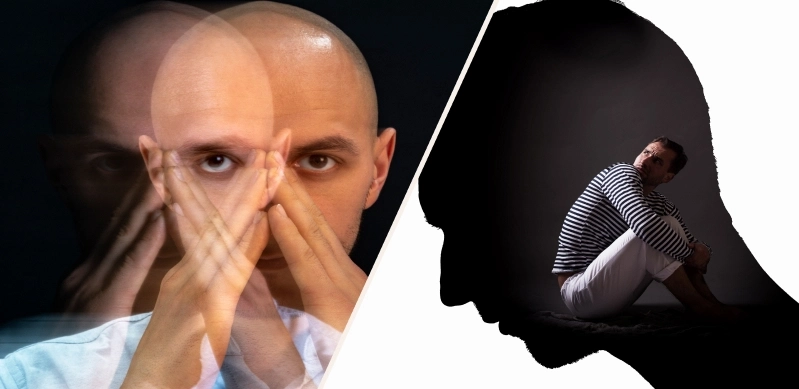Bipolar Specialist Near Me: Seek out a therapist who will work with you and your loved ones to develop a complete treatment strategy. This entails treating your individual triggers, lowering stress, and stabilizing your symptoms.

Managing bipolar disorder can be greatly aided by therapy. However, it can be challenging to locate the appropriate therapist. Where should one begin? When have you discovered the perfect match, and when should you see someone new? Continue reading for practical advice on how to locate the best therapist for you.
Where to Find Bipolar Specialist Near Me?
“Be proud of yourself for reaching out,” advises Melissa Hochbaum Strauss, LPC, a therapist on Maven, a virtual clinic for women’s and family health. It’s important to recognize that you’re making a significant stride in improving your mental well-being.
You should weigh all of your possibilities when choosing a therapist for the treatment of bipolar disorder. Before making your choice, it’s a good idea to speak with a few doctors if you can.
If you don’t feel at ease with the first therapist you see, you always have the choice to seek out someone else. You can use the following tactics during your search:
Request a Referral
Ask your primary care physician or any other medical professional you trust for a recommendation for therapy. Perhaps they know someone who has experience with treating bipolar illness.
Silvi Saxena, MSW, LSW, a social worker and clinical trauma specialist who focuses on anxiety, depression, and emotional regulation, states that “[doctors usually] have a network of providers they know and may be able to suggest a starting point.”
Get in Touch with A Clinic or Medical Facility
Determine if any nearby hospitals have an outpatient counseling or psychiatry service.
A training clinic at a college or university is a good place to start if you’re seeking for a less expensive alternative. Students who are therapists are closely monitored by licensed professionals and instructors.
What Is the Price of Therapy?
The average cost of a therapy appointment ranges from $65 to $200. The price of therapy ranges from $100 to $200 in most places. Specialized therapists may charge more, and major metropolitan areas may have higher prices.
Contact Patient Advocacy Groups
Look for therapist recommendations from your local mental health organization, or consult directories from these national groups:
- Alliance for Support for Depression and Bipolar Disorder (DBSA)
- The National Alliance on Mental Health (NAMI)
- International Bipolar Foundation (IBPF)
Additionally, think about joining a support group for bipolar illness and asking members about local advice or online resources.
What to Ask a Possible Therapist
When looking for a therapist, Dr. Vanessa Kennedy, the head of psychology at Driftwood Recovery, advises inquiring about their methods for treating bipolar illness. “Make sure they’re familiar with evidence-based practices and… [that they’re] an advocate for medication,” she says.
If medication is a component of your treatment strategy—which it probably will be—it is essential that your therapist assists you in adhering to it and offers methods to help you stay on track.
You could, in conclusion, consider asking a prospective therapist:
- Which treatments do you employ to treat bipolar illness?
- Do you believe medicine is necessary?
- What is your usual approach when dealing with people who suffer from bipolar illness?
Therapeutic Approaches for Bipolar Disorder that Are Effective

According to Kennedy, “bipolar disorder is a biologically based illness that responds well to medicine, stress management, and sleep hygiene.”
There are aspects of many different kinds of therapy that can aid with these areas. Some examples include:
Cognitive Behavior Therapy (CBT)
This therapy helps you recognize and modify negative thought patterns and behaviors as well as develop strategies for managing your symptoms.
Family-Focused Therapy
This method helps you and your family learn more about your symptoms and triggers, as well as create strategies for avoiding and lessening episodes.
Social and Interpersonal Rhythm Therapy
In addition to enhancing your relationships, this treatment focuses on establishing healthy sleep patterns and other potential symptom triggers.
Therapy in Groups
A review of 39 researchTrusted Source indicated that therapy for bipolar disorder may be particularly beneficial when administered in a family or group context.
Qualities of A Good Therapist
Every individual has different wants and needs. It’s alright if you discover that a therapist who was suggested to you isn’t a good fit.
Open to Collaboration
Kennedy says it’s crucial that your therapist be open to working with other healthcare professionals.
Views Therapy as A Collaboration
Therapy is most effective when you and your therapist agree on the course of treatment and have the same objectives. Ask yourself the following questions as you begin to see a therapist or look for one:
- Has the therapist inquired about my objectives?
- Do they address my worries and queries?
- Do they seek my thoughts and perspective?
- Do you get the impression that therapy is a partnership between the two of us?
- When I ask questions, does the therapist appear to be aloof, defensive, or does he behave like an authority figure?
Completely Absorbed in Therapy
Strauss recommends seeking for these indicators to ensure your therapist is completely involved:
- They lean towards you when you talk and make eye contact.
- They recall details you’ve previously provided.
- They truly pay attention to what you have to say.
- If your family members or carers are involved, they interact with them.
Exudes Trust and Empathy
In her clinical experience, clients who see gains in their mental health also believe that their therapists have their best interests at heart and that they can trust them.
Indicators that It May Be Time to Change Therapists
When should you consider switching therapists? According to Saxena, it may be time to change if you feel like:
- Therapy is not yielding much for you.
- You are not developing.
- Your expectations are not being met or even considered.
Therapists who are a bad fit for you may:
- Appear to be preoccupied and have their attention on other things
- Frequently misremember key details you’ve shared about yourself, your life, or your ambitions
- Make remarks that are harsh, judgmental, or inappropriate
To wrap this up, you don’t want a therapist who will immediately jump down the rabbit hole of treating other mental health symptoms simultaneously, like trauma or obsessive-compulsive disorder (OCD). Choose wisely.







